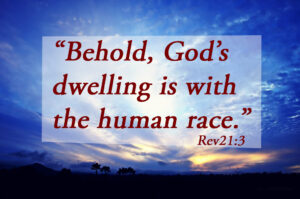The LORD appeared to Solomon in a dream at night.
God said, “Ask something of me and I will give it to you.”
Solomon answered:
“O LORD, my God, you have made me, your servant, king
to succeed my father David;
but I am a mere youth, not knowing at all how to act.
I serve you in the midst of the people whom you have chosen,
a people so vast that it cannot be numbered or counted.
Give your servant, therefore, an understanding heart
to judge your people and to distinguish right from wrong. 1 Kings 3:5,7-9
This passage about the young Solomon may lead us to think of Solomon as a wise, God-centered youth, like King David, his father, but Solomon in later years lost his way. A few years ago, in our Explorations in Faith and Spirituality sessions on the Old Testament1, Dr. Christine Hayes shed light on Solomon’s later life when his focus was on objects and activities that, not only made him less of a God-centered king, but also set the Tribes of Israel up to become a divided kingdom whose parts were too weak and un-God-centered to survive. So, from that time on, I have been wondering: how could this happen to David’s son? And I wonder if evidence of the demise of Solomon was present in the incident related in the above reading.
I wonder about Solomon’s “Give your servant, therefore, an understanding heart to judge your people and to distinguish right from wrong.” Were these words chosen based upon whatever it was that was his inner goal at that moment, the reason behind all his words and actions? (Surely all us humans, me included, have some inner motivation for what we say and do. What is my inner motivation?) Did Solomon’s words come from what he thought God wanted to hear rather than being the words that would have expressed what was in his heart?
Think about it: What was Solomon’s inner motivation and did it remain? Did it lead him into those later years where he seemed to be mostly interested in gaining more and more power, personal possessions and self-gratification? I have more admiration for David, who wasn’t perfect, but was, to my way of seeing him, a role model for us – a humble sinner who seems to do a better job of being honest about who he was in the sight of the God whom he wanted to be the center of his life, the One he “let” get into his very heart.
HOW HONEST ARE YOU WITH GOD AND WITH YOURSELF?
So, when you speak to God or Jesus, do you say what is really in your heart? And, are you open to hearing whatever message God is sending you?
And are you looking for a reply via what I call an extraordinary miracle, like some unnatural physical occurrence? Or do you see that what is within you – what you could “let get into your very heart” (your genuine, total commitment to God) – is probably the only miracle you need?
Think about it, as I will, too. Let’s each of us let ourselves be aware of God, here – right now – always here. What is you answer to this question that God is putting to each of us:
“Ask something of me and I will give it to you.”
Sister Loretta
- Introduction to the Old Testament (Hebrew Bible) on Solomon: Lecture 14
SUGGESTED RESOURCES
Being Honest With God (5 Important Steps to Know) – blog by Elizabeth Foil on biblereasons.com
“The best thing we can do for ourselves and our relationship with God is to be vulnerable before Him. This means being honest with God. Please tell me, what relationship is healthy without being honest? There are none and yet we seem to think we can’t or shouldn’t be as honest with God as we also need to be with ourselves. . . .”
Getting Gut-Level Honest with God – blog by Catherine Park on reviveourhearts.com
“I’ve been trying something new lately, and it’s revolutionizing my life. I’m being honest with God. Maybe that sounds ridiculous. How could I be any more honest than I already was? I mean, He knows everything. He sees me as I am. You can’t get more honest than that. But I’ve realized I’m still so much like Adam and Eve in the garden. I’m running frantically, trying to cover up my shame by haphazardly sewing together fig leaves.
“It happens most when I pray. I think I have to get it together first. I stop in the middle of my prayer, worried that what I said might be theologically inaccurate. I find myself about to complain about something and think, I can’t say that to God. Look, I know it’s silly. I’ve been a Christian for years and years, and yet I’m still running around in fear of being exposed. . . . “
Be Honest with God When You Pray by James Martin SJ on ncronline.org
. . . . Most of us try to give up something for the liturgical season that precedes Easter, and also try to be more generous. But how many of us think of this as a time to jump-start our daily prayer? With that in mind, let’s focus on one important practice: being honest with God. Letting God come to know you is essential in your relationship with God. Letting yourself be known in this relationship means, more or less, the same as it does in any relationship: You must speak about your life, share your feelings and reveal yourself openly. Honesty is an important part of this process. Honesty is an essential part of prayer. . . .”
5 Things the Psalms Teach Us about Being Honest to God adapted from Open and Unafraid: The Psalms as a Guide to Life, by W. David O. Taylor on churchsource.com
“Is it possible to stand honestly before God without fear, to face one another vulnerably without shame, and to face the world without any of the secrets that would demean and distort our humanity? For most of us, the answer to this question is “Maybe.” Or more frankly, “No.” We may find a smidgen of courage to stand fully honestly before God on occasion, but we frequently find ourselves hiding things from God, for fear of being (harshly) judged and found wanting.
“We may be truly vulnerable with another person here and there, but we also fear being rejected, and so we hide our truest self from others, even from those who are closest to us, and so rob ourselves of the gift of deep, rich community. Or we may like the idea of living fearlessly in the world, but the hardships of life make us want to play it safe and to protect ourselves from the unpredictable realities of our broken world. So is it really possible to be honest to God—truly open and unafraid with God and with others? The psalms answer yes. And God gives us the psalms as an antidote to our inborn temptation to hide and. . . .”
SOME PRAYERS AND HYMN-PRAYERS THAT MAY BE HELPFUL
The Aposles Creed or the Nicene Creed – Do I believe? And what does that belief do and let God do to my thoughts and actions? (God made us free to find Him – who God really is – or ignore Him or let ourselves believe Him to be like we want God to be.
Our Father
Sucipe of Catherine McAuley (Foundress of the Sisters of Mercy – my community)
Sucipe of St. Ignatius of Loyola
Center of My Life
Take, Lord, Receive
ON BEING THE PEOPLE OF GOD
And, you and I are not just about ourselves alone. God’s engineering of all life has made us all interconnected. We are the family of God, intertwined for sustenance and support with everyone and everything that was, is and is to come. Let’s try to center ourselves on the fact that we are God’s Family, together with each other and all Christians past, present ans future as we sing this hymn now and at Mass.
O God, Beyond All Praising




